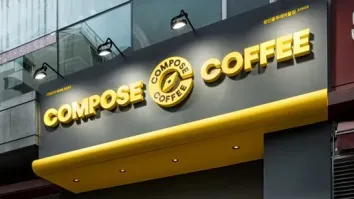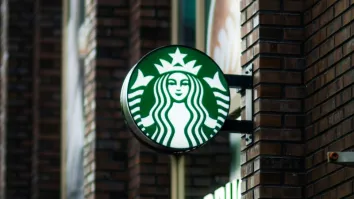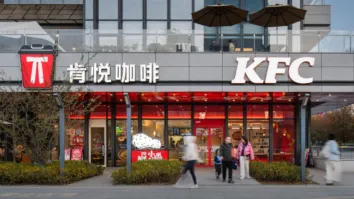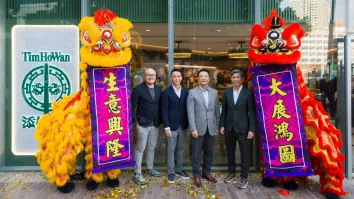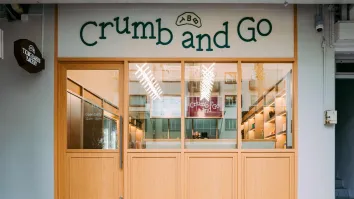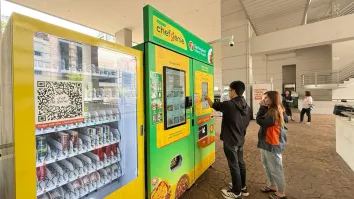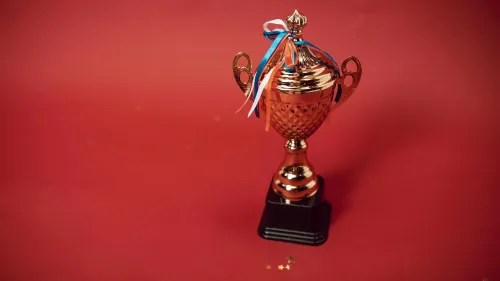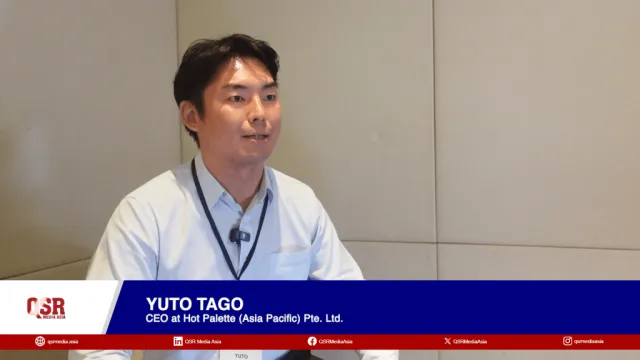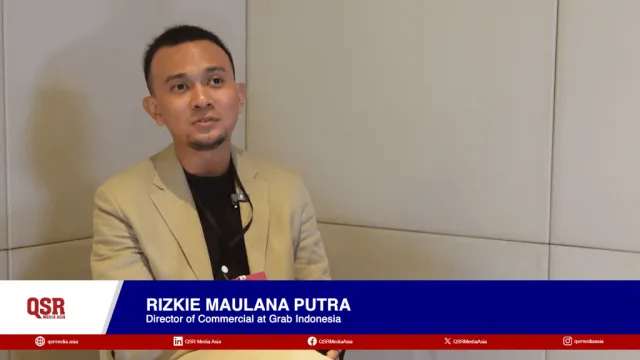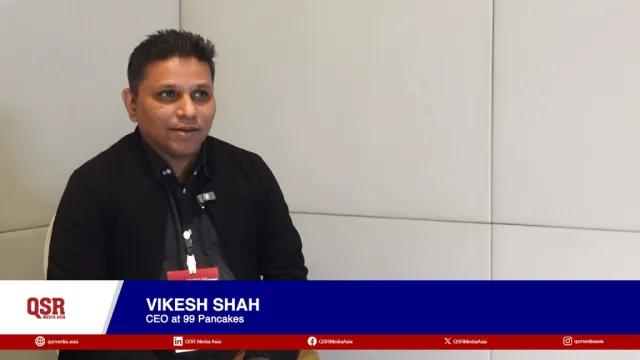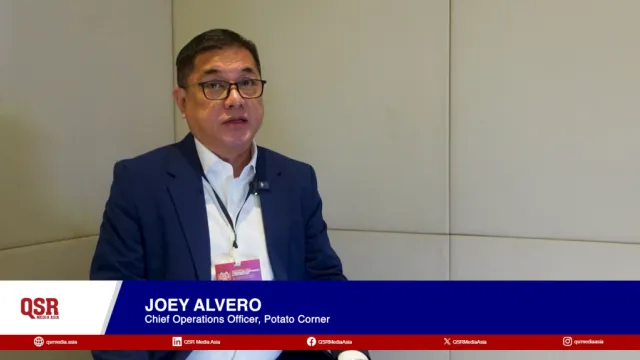
Here's why Yellow Cab, Jamba Juice Philippines COO doesn't need promo deals to stay ahead
Brand essence is a bigger priority.
Roy Quejada has risen through the ranks of the Philippine fast food industry, beginning his career as a service crew member in 1989. By 2012, he had worked his way to the role of Chief Operating Officer (COO) for Yellow Cab, one of the most prominent home-grown pizza chains in the Philippines. On top of this, 2016 landed another feather in Quejada’s cap as he was appointed COO of burgeoning beverage chain Jamba Juice Philippines.
QSR Media Asia caught up with Quejada to explore his thoughts on staying ahead of the pack, and on staying true to the brand. Below is the transcript of the interview:
QSR: What's the secret to your success? What roles have prepared you for your position now?
The secret to my success—that’s always a question to people in my position and even to restaurant managers. When I started out as a crew in McDonald’s in 1989 all the way up to 2006, I was moving up to new positions at about an average of three to four years.People would always ask me the same question—what’s the secret to my success?
There’s so many but what’s most important to me is this principle of always being better than who you are. It’s self-improvement. To me, it’s your only way to make sure that you remain competitive in the market. If you stop learning, stop improving your turf, then that is the start of your decline. So I believe in that principle: Always be better than who you are right now. So that’s the mindset, from my end.
Second lesson that I would always tell people around me is to share your knowledge. It doesn’t matter how much you know. There should always be other people around you that can do the other jobs that you’re doing.
You want to delegate, but if you want to delegate, you should be able to share the knowledge that you want to delegate all these tasks. Otherwise, it’s easier to delegate, but the result you’re probably looking for? You won’t be able to achieve it. As compared to you really sharing the principle, aligning the person to the way of thinking. So that’s what I mean when I say share your knowledge as one of the keys to success that I have.
QSR: How do you stay on top of the increasingly competitive food and beverage scene?
I frequently go to Fully Booked, I go to National [Book Store], I go to Power Books. But I find that the most interesting self-help, leadership, management, and economics books in Fully Booked.
I frequent bookstores because I find a lot of new books. So that’s my way—I have to look for books that are updated. But I still buy those ones that are frequently bought by leaders. There are common books that you should not miss, like The Good to Great—I think all the leaders of each company must read that book. But what I do to stay ahead is to keep myself abreast of what’s happening in the market through the books that I buy.
Connection is another thing. I always try to make sure that I talk to people who know the industry better than I do. I attend seminars once in a while to get more information. Two prongs: I get to learn based on the seminar, but I also learn from the people I interact with.
That’s staying ahead of the game—exposure.
I try and make sure I visit different countries every once in a while to keep myself updated on what’s going on.
QSR: How do you stay passionate about your role in Yellow Cab and Jamba Juice?
There are so many ways to keep myself focused. I would say one is to set your eyes on your goals. You always need to look at the goals that you set for your brand. Not just for a year, but how you see the spectrum for the years to come. You have to set your eyes on that, otherwise, it’s easy get out of focus. There are so many things happening around, it’s so easy to get out of focus. So the key there is to set your eyes on your goals.
Second is tracking. Because there are so many things you need to do, you have to be updated of what’s going on. And each project, each initiative you’re implementing, you have to keep track of that. How do you do that? You make sure your team is also doing their own tracking, they’re also updated of what’s going on.
Also, mentally, physically, emotionally, the balance we always talk about. That’s important to keep yourself passionate whatever it is that you’re doing. Even if you're the brightest person in the world, if you don’t stay fit, I don’t think your body will be able to catch up on the way you think. The full-body concept, to me, is important to how you can keep yourself passionate.
QSR: What's the most important thing you've learned in all your years with the Yellow Cab?
I have four. [First,] keep things simple. Do not overcomplicate things. That’s one lesson. You see, when we try to develop something for Yellow Cab, we try as much as possible to keep it very simple; to make it easier for our customers to get a pizza, to get a Yellow Cab. No complications, no fuss. The menu’s there, you order, you wait for it—that’s it.
If you would notice, that’s one of the things we did recently for Jamba Juice. This isn’t the original menu board, but we tried to set it in a way that it’s easier for the customers to look at each [product].
We also made a pattern now. If you would notice, all the Classic Smoothies are positioned from left, and the new, other smoothies to the right. When you saw this a couple of months ago, each store would have its way of positioning the menu board. But it is my belief that the customer journey is constant. When they go upfront, they always want to see where the Classic Smoothies are, where the other smoothies are. So we positioned it that way.
So, again, we try to keep things simple as much as possible.
[Secondly], focus on your brand. It’s so easy to get out of focus because of all the competition. And sometimes, it’s tempting to do what the competition is doing. We do not allow ourselves to do that. And if we do, we still try to make it unique.
If you would notice, people are asking, “Why doesn’t Yello Cab do a lot of promos? Meanwhile, their competition—Shakey’s, Pizza Hut—have these buy one, get one deals?” We do have deals like that, but it’s not buy one, get one. It’s Two Pizza Friday.
We believe we don’t have to play the same game. We try as much as possible to keep our brand much better than the betters. However, if we look at things and we need to come up with a promotion and deals, it fits the brand.
Third, another important thing that I learned is the Parachute Principle. Being open, being engaged. As they say, your mind is just like a parachute; it’s better when it’s open. So that’s how it is in our brand. That’s what we’ve learned over the years. Engagement is important; being important to other people’s suggestions and opinions. Provided that it’s directed towards the objective that we want to achieve, then an open communication is fine.
The fourth one that I would always tell people around me is that it’s always about experience. Any restaurant, for that matter, will have to look at how they execute quality inside their store.
The experience of the guest whenever they go to Jamba Juice or Yellow Cab will always be different, and we try to make it different. Because if it’s the same, then you lose the essence of the brand.
Each restaurant, therefore, needs to look at how they can keep their brands unique. If eventually you see a Jamba Juice becoming a Yellow Cab, that’s the start of Jamba Juice’s decline. We try as much as possible to make sure that the experience here is different, the experience there is different. What’s important is that we all understand what we stand for in terms of our branding.
So those are the four important things I’ve learned over the years in Yellow Cab.
QSR: Do you think these things are applicable to your time as a Jamba Juice’s COO as well?
Yes, same thing. It’s the same formula to me, the difference is the brand essence. As I’ve said, the experience inside Yellow Cab and the experience inside Jamba Juice will probably follow a certain framework. But what differentiates one brand to another is the brand essence, what it stands for.
Jamba Juice stands for inspiring and simplifying healthy living. Yellow Cab’s essence is sharing that experience of New York. So I will never tell my people in Yellow Cab, “Hey, your new objective is to inspire simplify healthy living.” Because it’s never going to be that way. In the same manner, I cannot tell this California-based franchise that you have to share a slice of New York, because [Jamba Juice] is not from New York, it’s from California. So that’s the brand essence.
Framework, in terms of experience, is maybe the same. But the output must be based on the essence of the brand.
QSR: Given that Jamba Juice is a relatively new addition to your repertoire, what difficulties have you encountered regarding your role in the chain?
I think in any scenario where you’re going to be handling a new brand, transition happens. And because of that, there is some disconnect from the way people work, the way people think while you’re trying to put in the work values that you have. So there’s always the challenge to align everyone.
And aligning everyone sometimes would always have its fallouts. Meaning, someone will probably leave because it’s a new way of doing things. That’s actually the biggest hurdle anyone in my position or any management position will experience when they get into a transition phase into another brand.
QSR: What’s the most important thing you’ve learned from this transition?
Because people are transitioning, it allows you to look at your people in a different perspective. I believe in the principle of putting the right people in the bus, from [the book] Good to Great. If you don’t have the right people on the bus, you will lose your business. Any transition, for that matter, will go through that assessment—do I have the right people in the bus?
What we’ve learned from all these challenges is that the diverse component of people inside the store will actually make or break your business. So I have to be watchful of that. If I don;t have the right people in Jamba Juice, that’s going to hurt.
But that doesn’t mean we’re not open to developing people from within; we are. But that’s the thing—some people would be open to it, some people would not be open to it.
If you want a quicker way to turn around things, you can approach it in such a way that you can replace the people inside. That’s one approach, but I’m not saying that’s the only approach I look into. I always look at it with a balanced perspective—some people will have to go, some people can be developed.
That lesson is not for Jamba Juice alone. You know, Yellow Cab has transitioned to three different owners over the past five years. Yellow Cab was first acquired in 2011 by the Pancake House Group, then acquired again by the Max’s Group Inc. in December 2013. So from the original owner, to a new owner, to another owner. We all went through different transitions. We lost some people, but we were also able to keep most. The key there is to make sure we keep ourselves aligned and not disconnected from the values and beliefs of the new owners. So we try to adjust to it.
QSR: Was hanging on to the brand essence challenging amid the transitions?
It’s tough, because new owners would probably not have the same perspective you have. There’s that learning curve, and obviously it’s not overnight. So if new people come in, they have to understand the brand very well, similar to those who acquire the brand. They have to understand the brand carefully.
QSR: What obstacles are you anticipating this year for Jamba Juice and Yellow Cab? How do you intend on tackling them?
I think it’s not only my brand, but all brands in the market are facing internal and external issues.
External, because of the growing number of competition. Nobody is actually letting go. The main players—Shakey’s, Pizza Hut, Greenwich—they’re all there. They don’t stop expanding, they still grow. And we’re seeing new players in the market. We’re seeing one-offs in the market. And we feel over the past several years, it has been expanding.
Competition is so tough, and as I’ve said, that’s one issue that we’re facing. What happens is that there’s new competition, there’s cannibalisation of the market. At the same time, there’s cannibalisation of manpower because all these one-offs and all these other big players will try to get people from your space.
We have to retrain people, rehire people, hire people to fill in the numbers. And not just because of competition, but because we’re also expanding locally and we’re expanding internationally. So that requires more people to train our team not only here but even the international staff. So there’s pull in manpower because of our international expansion but also because of the new competition.
Externally, we try not to get affected with all the restaurants coming up.
So those are the things we’re facing this year, and what we’re seeing in the years to come to be challenges to the organisation.
QSR: How do you intend on tackling your internal issues?
We make sure that our team understands our values. Because that’s the thing—we’ve had managers who left, then decided to come back. Why? Because they could not take the culture in another brand so they decided to go back. Because they realised they were happy with Yellow Cab. They were probably trying to look for something, but at the end it probably goes back to the values of the person.
I guess that’s how it should be. In order to prevent too much let-off of employees, we have to make them embrace the values and culture of the brand. It doesn’t guarantee anything, but I believe in my years of experience, when people get to understand the values and align their values to the brand, they stay longer.
When some of my people leave or tell me they’re going to leave to take on another opportunity, I always ask them the same question. Have they studied the values and culture of the brand they’re transferring to?
Some workers now don’t see it that way. They feel they can easily adjust to the values and culture of the brand. But that’s difficult because leaders of each organisation may have sets of values that may not fit the employees they’re getting. So that’s one thing workers and employees right now need to consider. It’s not all about the money; it’s about the working conditions, it’s about your relationship with the people around you. That’s important.
QSR: What goals are you targeting for the two chains for the next twelve months?
You may have seen in the news that we are expanding Yellow Cab in other countries. We’re opening in China soon. We’re also opening in Singapore. So you see, we believe that Yellow Cab can be very strong in other countries. If there are the Pizza Hut and Domino’s of the world, we believe we actually belong in that category. We know that the way we do things is very simple; it can adapt, it can adjust to the needs of each country easily. That’s what we’re seeing right now in the market, and what we’re trying to achieve for Yellow Cab.
For Jamba Juice, we now have twenty stores in the Philippines. But we know that we can still penetrate the market, we can still capture more customers. But because of competition around, both local and international players, there’s a challenge on how to capture more market in the Philippines. But we set our eyes to it, we want to make sure Jamba Juice is successful not only outside the country. We also want to make sure it becomes successful here in the Philippines.
QSR: How do you see local success happening for Jamba Juice, given its status as a more upscale competitor to certain local brands?
There’s always this principle of brand essence. Each brand must live up to its brand essence. And apparently because this brand came from California, there’s a certain level of expectation in the market.
Pricing, as you said, is more upscale, yes. But we try as much as possible on the succeeding initiatives we’re taking on not to isolate the other market in the Philippines. We introduce some traffic generating activation such as the Thirsty Thursday, which allows customers to buy a medium-sized [smoothies] and get their smoothies upgraded to large. We started putting in the 12-ounce cup as an entry size. It used to be 16 ounces, but now we’ve moved it down to 12 ounces.
Again, we try to keep things in the right perspective as far as the brand essence is concerned but we’re listening to the market. We know what the market needs, and we are also willing to adjust in order to capture more of them. But obviously, we’re doing it the right. I can just as easily bring down the price, but again, that’s not in the brand essence. We will do it the right way, as we want to capture more market.
I know there’s a huge demand for beverages. We’ve seen a lot of beverage stores that opened over the years—the tea market, the coffee market. We also have competition locally. So you see that there’s really a demand for refreshing drinks because it’s a tropical country.
What we’re trying to do right now is make sure our approach to the market is not going to negate what the brand stands for. But at the same time, ensuring that we capture a bigger market.
QSR: Are there any pet projects for Yellow Cab and Jamba Juice you're working on that you could share with us?
You will see it in the coming months. There are a lot of projects coming up, but I think it boils down to ensuring that the needs of the market are covered. Again, it’s the balance of the brand essence and the need of the market. There are a lot of exciting thing coming up in the months and years to come.
If we’re trying to make Yellow Cab international, then you can just expect we’re gearing up on making sure that our activations and promotions are connected to how other countries are doing it. So that’s the direction, in context of what we’re going to do.
QSR: News recently broke that Yellow Cab will soon be landing in Beijing, China. What other Asian markets is the restaurant eyeing in the near-term? You mentioned you were opening in Singapore?
We’re targeting to open [Yellow Cab] in July. The team is actually here, having their training in one of our stores. It’s ongoing, and the construction is ongoing as well, so we’re hoping we can open by July.
[Singapore] is a new market for Yellow Cab. We’re targeting July to August to operate. We have signed with them late last year and some were early this year. Everything has been signed a few months ago already. Everything is just being prepared just to make sure we open it the right way. There have been challenges in the past which is why we want to make sure that this time, we are operating in such a way that the needed support for all our franchisees abroad is available.
QSR: Is there anything else you’d like to share to the QSR Media Asia readers?
Stay true to your brand—do not copy.
